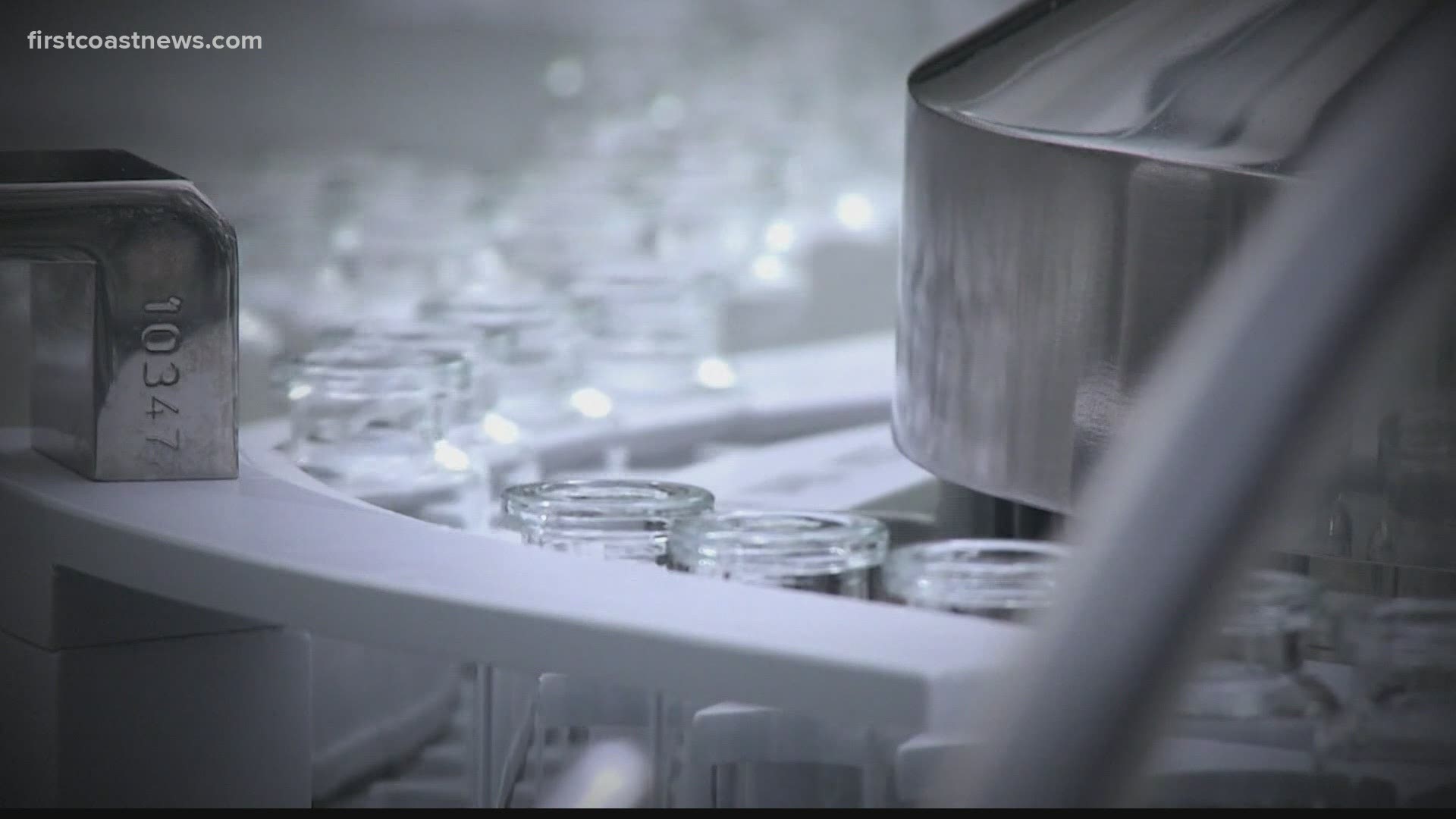JACKSONVILLE, Fla. — Just over the past few days, two trials to help heal those with COVID-19, and to help prevent it, have paused due to safety concerns. This comes a month after another vaccine trial halted its study.
The Eli Lilly antibody trial halted its trial Tuesday, and the Johnson & Johnson vaccine trial pressed pause Monday. Eli Lilly asked the Food and Drug Administration last week for emergency use of the treatment. The company hasn't described the safety issue of the government-sponsored trial.
Johnson & Johnson representatives said an unexplained illness in one of its participants halted its vaccine trial. About a month ago, AstraZeneca paused its trial after a participant developed a spinal cord injury.
"What’s happening is that this is all the normal course of events for people in my industry of running clinical trials," Dr. Michael Koren of the Jacksonville Center for Clinical Research said.
"It’s just that the public has some more insight into it than they did before, or really never cared that much about before. These are things that are fairly routine," he said.
Koren heads up the Pfizer and Moderna COVID-19 vaccine trials on the First Coast, not the trials halted. Koren said the trials on the First Coast are going well about three months in. He also said scientists pressing pause on two of the other COVID-19 vaccine trials within a month of each other isn't a cause for a big concern.
"It’s not anything that’s terribly alarming. We’re not hearing about any deaths that people think are related to the vaccines, and it’s a normal pause that occurs in a lot of studies," he said.
AstraZeneca and Johnson & Johnson's studies inject an active virus into participants. Some of the other trials, like the two on the First Coast, use messenger RNA, a piece of genetic information that tells our bodies what to do. Koren said, however, you can't link the vaccine's type, messenger RNA or active virus, to a participant's illness.
"It's just too soon to tell. And because of the high-profile nature of these studies, the sponsors of the studies will be very, very cautious," Koren said.
The trials are also placebo-based, meaning no one knows who gets the vaccine and who doesn't.
The trials could take a few days to a few weeks to resume, Koren said, depending on how bad the side effects are. Koren said if there's a more serious problem, the company would have to go to the FDA and tell them what they'd do to mitigate the problem in the future. They may even conduct X-rays and/or CAT scans for all of the other participants to look for any possible issues.
The AstraZeneca trial resumed in the United Kingdom, and Koren said he thinks it will resume in the United States soon. He said overall, he's optimistic about a COVID-19 vaccine by the end of the year, or early next year. Koren said science, not politics or anything else, is influencing the timeline.
"I feel very confident in saying that my colleagues in the studies that I'm involved with, and my colleagues in the studies I'm not personally involved with, are doing the right thing and basically looking at safety as our primary objective, which we always do in all programs," Koren said.
"You’re seeing just a tremendous amount of effort being put forth [to find a vaccine], and I do believe you can trust the system. Our system is set up to completely evaluate safety as our number one primary objective and I would feel optimistic actually with all of the resources and all of the brainpower and all of the manpower that’s going into building solutions for COVID-19 that we’re going to see a solution in the very near future," he said.
Koren said Pfizer has also announced it's lowering the age of participants allowed to enroll in its COVID-19 vaccine trial to 12.
"One of the challenges of this particular illness is younger people tend to have more benign presentations. They’re less likely to get really, really sick and because of that, I think that probably that teenagers and college students have been a little bit loose, a little bit flippant in terms of wearing their masks and social distancing and doing things that we know are important to prevent the spread of infection," Koren said. "So, one of the possible public health strategies now is to make sure that younger people are vaccinated so they’re less likely to spread the illness to their parents and grandparents who are far more vulnerable”
The previous age limit was 18 to 85-years-old.

